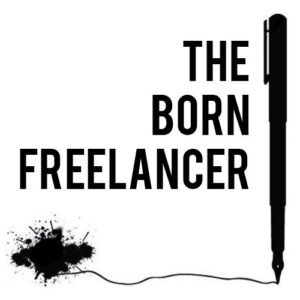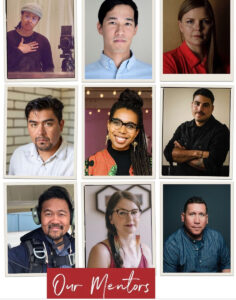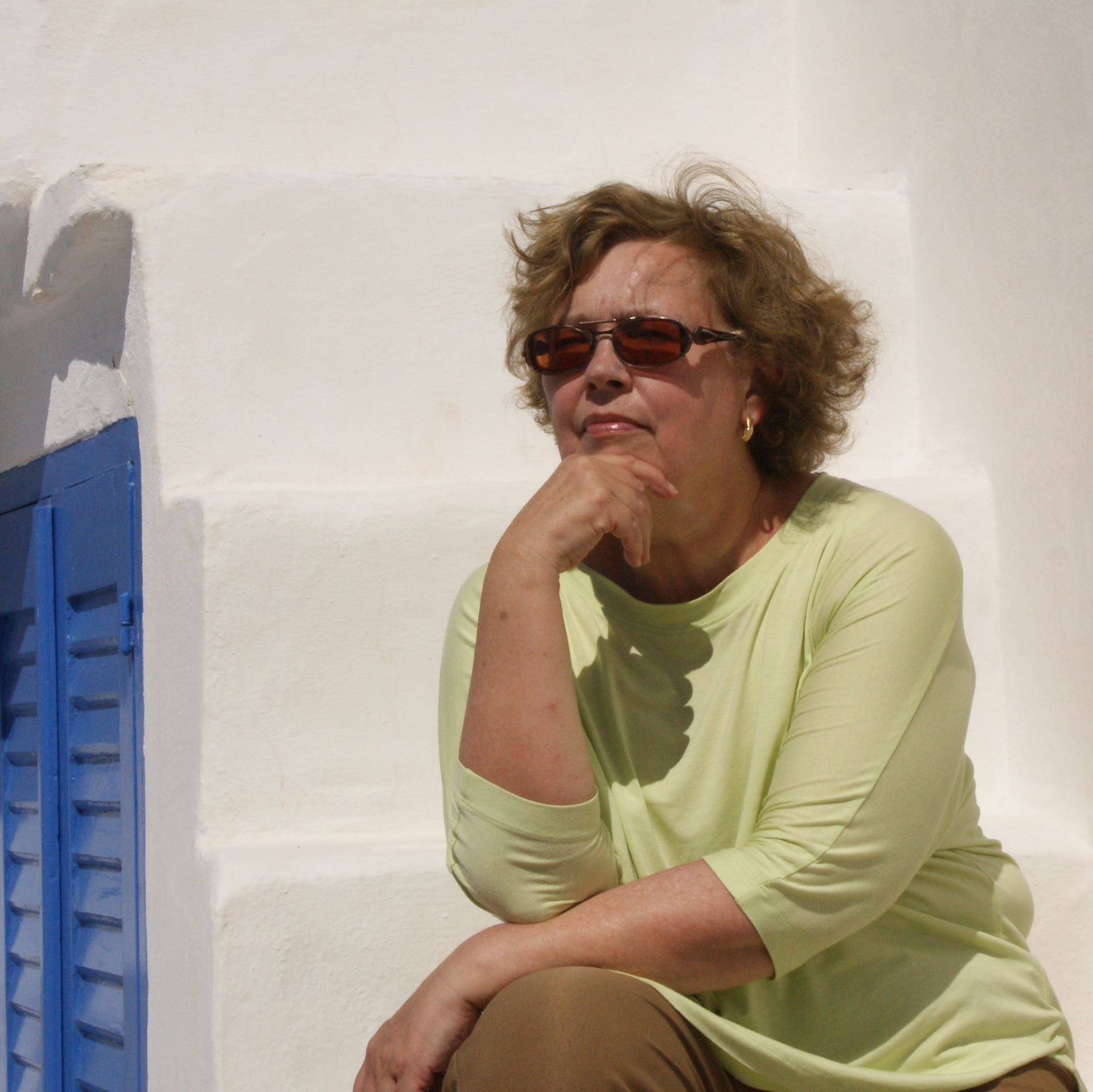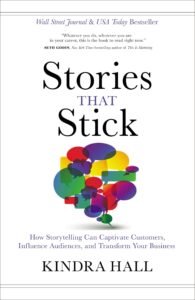Webinar: How to Find Work
If you’re looking for more work opportunities these days, hurry and register for the CFG’s upcoming webinar How to Find Work. This online event happens on Wednesday, October 21st from 7:30pm to 8:30pm Eastern Time.
One of the first member benefits the Canadian Freelance Guild established after being formed in April of this year was The Job Bank. CFG members Robyn Roste and Rachel Sanders scour their sources for full- and part-time work, contracts, gigs, calls for pitches, remote working opportunities and more, covering the many different fields in which our members work. They have already posted 40 pages of possibilities to The Job Bank since the middle of April. They will share their search techniques and provide some advice on responding to the opportunities found in The Job Bank.
Lesley Evans Ogden is adept at seeking out international clients for her ideas and will share tips on how to find and appeal to those clients.
This webinar is also your opportunity to share both your successes and the challenges you’ve had during these rapidly changing times.
Rachel Sanders has freelanced in print and audio journalism for nearly two decades. She has written about  Canadian arts and culture, education, labour, and the environment for CBC News, CBC Arts online, The Toronto Star, Postmedia News, The Tyee, and The Georgia Straight. She has won and been nominated for a number of awards, including the Canadian Journalism Foundation’s Landsberg Award for reporting on women’s equality issues in Canada. She has been the editor of Story Board, the CFG’s blog for freelancers, since 2012.
Canadian arts and culture, education, labour, and the environment for CBC News, CBC Arts online, The Toronto Star, Postmedia News, The Tyee, and The Georgia Straight. She has won and been nominated for a number of awards, including the Canadian Journalism Foundation’s Landsberg Award for reporting on women’s equality issues in Canada. She has been the editor of Story Board, the CFG’s blog for freelancers, since 2012.
 Robyn Roste is a professional writer, marketer and podcast editor. She has spent more than a decade working at an international non-profit, first as a blogger and now as a marketing manager, where she also oversees a media agency. In addition, her freelance writing business provides content marketing and journalism services, with clients ranging from agencies, newspapers, and small businesses to authors, bloggers, and entrepreneurs.
Robyn Roste is a professional writer, marketer and podcast editor. She has spent more than a decade working at an international non-profit, first as a blogger and now as a marketing manager, where she also oversees a media agency. In addition, her freelance writing business provides content marketing and journalism services, with clients ranging from agencies, newspapers, and small businesses to authors, bloggers, and entrepreneurs.
 Lesley Evans Ogden is a freelance multimedia science journalist based in the burbs of Vancouver. Producing work internationally, she writes about everything from deadly viruses to dinosaurs, often probing the intersections of environment, health, human rights, and policy. Her by-line appears in BBC Future, Natural History, Scientific American, Aeon, BioScience, New Scientist, National Geographic and many others. She was also the creator, writer and co-director of “Stay at Home Animal Dads,” for CBC’s The Nature of Things.
Lesley Evans Ogden is a freelance multimedia science journalist based in the burbs of Vancouver. Producing work internationally, she writes about everything from deadly viruses to dinosaurs, often probing the intersections of environment, health, human rights, and policy. Her by-line appears in BBC Future, Natural History, Scientific American, Aeon, BioScience, New Scientist, National Geographic and many others. She was also the creator, writer and co-director of “Stay at Home Animal Dads,” for CBC’s The Nature of Things.
This webinar is free for CFG members, and $25 for non-members. It is part of our Business of Freelancing Webinar Series.
Register for the webinar How To Find Work right here.
You can find more information about the cost and benefits of membership in the CFG right here.
The link to the Zoom webinar will be sent to you via email about half an hour before the start time. Please check your spam or junk folders if you can’t find the email, and contact organizer@canadianfreelanceguild.ca if you haven’t received the link 10 minutes before the scheduled start time.
Nonfiction Book Publishing: Tales from the Trenches

CFG and King’s College present:
Nonfiction Book Publishing: Tales from the Trenches
Sunday, November 15 from 3 pm Eastern Time on Zoom
Join Karen Stiller, Tyler LeBlanc, Christian Smith, Catherine Fogarty and Leslie Marion as they share their experiences as recent first-time nonfiction book authors. They’ll offer thoughts and lessons learned on all aspects of the process, including developing an idea and crafting a book proposal, finding an agent, research and writing, working with an editor, and more. Marion, who self-published, will give advice on how to decide if self-publishing is for you.
Moderated by Kim Pittaway, executive director of the MFA in Creative Nonfiction at the University of King’s College, and co-sponsored by King’s and the Canadian Freelance Guild.
This event is free, but you must RSVP to kim.pittaway@ukings.ca (please use the subject line: CFG King’s Panel) to reserve a place and be provided with a Zoom link. Spaces are limited.
CFG members have exclusive access to register first until October 12, when registration will be open to the general public.
King’s MFA Meet & Greets
Do you have a book in you?
If you have an idea for a nonfiction book, we can help you get it onto the page—and you can do it from wherever you live.
Read the rest of this post »
A refresher on indemnity and liability in contracts
by Don Genova

One of my roles as Organizer for the Canadian Freelance Guild is to help members interpret and negotiate contracts they’re asked to sign for the work they are about to do. (Lesson One: Agree on the contract before you start doing the work.)
With each contract I review, it’s almost a certainty that it will contain clauses which are either patently unfair to the freelancer, or leave them open to legal action that would cost them far more to deal with than the value of the contract they’ve signed.
Most of this comes down to the clauses about indemnity and liability. Many of them suggest that you, the freelancer, absolve the publisher from any responsibility for problems created by the work you produce, even though most of the time your end product is a co-operative effort between you and an editor or producer or an entire editorial team.
This acceptance of responsibility can happen even though the publisher has also asked you to give up your copyright and moral rights to your work. Giving up your moral rights means the publisher can make any changes to your story without having to consult you. So what happens if they make changes and end up making your original work ‘actionable’?
While going through the Story Board archives, I came across a post written by Story Board editor Rachel Sanders nearly two years ago featuring advice from Vancouver lawyer Dan Burnett, who has been practicing media law for close to 30 years. In re-reading it, I discovered Burnett’s sound advice of two years ago is still applicable to contracts freelancers are being asked to sign today.
Some highlights:
– “If a media publisher got an article written by a freelancer and had the freelancer sign an agreement indemnifying them in the event of any legal action, that would mean indemnifying them for the cost of the action, win or lose,” he said. “A lot of times with libel suits, the fees end up well in to the six figures. And a freelancer, for the sake of one article paying a few hundred bucks, might be potentially risking personal bankruptcy.”
– “If it is a clause that is actually saying I’m financially indemnifying you for any legal action over the story I’m writing, I would want to see that struck out.”
– Burnett also recommends that freelancers inquire about the status of the publisher’s insurance. He said if he were a freelancer he would want a clause included in the contract stating that the freelancer is considered an insured under the publisher’s insurance contract. Asking to be covered under the publication’s insurance, said Burnett, “would not be that big an ask.”
– Burnett also said a publisher might be risking its own reputation by not protecting its freelancers in the case of a defamation lawsuit.
“It isn’t just the freelancer who decides what to publish. Ultimately the editor decides what is going to go into print. So it’s a company decision that’s being made. And they want to stand by it and they want to be seen to stand by it,” he said.
To read the entire post for more of Burnett’s observations and advice, click here.
—–
The Canadian Freelance Guild wants to help freelancers be better informed about indemnity clauses and contract literacy. If you have a contract from a publisher that you’re willing to share, please send it to CFG Organizer Don Genova at organizer@canadianfreelanceguild.ca. Your name and identifying details will be redacted.
If you have questions about one of your contracts, keep in mind that one of the benefits of membership in CFG is advice on contracts and negotiating them. And check out this page on the CFG website for more information.
CBC Doc Mentorship Program deadline October 16
 CBC Radio’s Doc Mentorship Program is once again open for pitches this fall.
CBC Radio’s Doc Mentorship Program is once again open for pitches this fall.
Experienced audio freelancers are invited to submit a pitch to the program, which is also open to all CBC employees – staff, contract and temps.
The program is accepting applications for three different mentorships: the Doc Mentorship program, The Current’s Advanced Doc Maker program and the Emerging Indigenous Doc Maker program.
The program pairs up documentary makers with experienced CBC producers who provide guidance and mentorship through the process of making a radio documentary. Mentors are happy to provide feedback on pitches before the formal application process, so applicants are advised to contact the mentor they wish to work with before they apply.
The deadline for pitches is Friday, October 16th. All work must be completed by January 2021 at the latest.
You can find more details about the Doc Mentorship Program and how to apply, on the Doc Makers website. If you have any questions about the program, please email docmentorships@cbc.ca.
And for information about CBC rates and contracts, check out this page on the CMG Freelance website.
WEBINAR: Strategic Storytelling for Non-profits

Please join us for the Zoom webinar Strategic Storytelling for Non-profits on Tuesday, October 13 at 7 p.m. ET.
Your webinar presenter is CFG founding member, writer, editor, strategic storyteller, and story coach Michael Strickland.
“We’ve been telling stories forever,” he says. “Long before the data-driven annual report or flashy product video, people gathered in caves to scrawl pictures on walls or share tales around a fire. Today we do it with family at the dinner table, colleagues at the water cooler (wearing face coverings of course) and strangers online.”
In this webinar, Michael will review how the strategic use of story can help individuals and organizations achieve their most important goals. Along with storytelling lessons from his 35-year career in journalism, media relations and strategic communication management, Michael will:
- Examine how leaders and organizations use story to ensure their messages stick.
- Introduce techniques that make some stories timeless, from Romeo and Juliet to Harry Potter.
- Review story types, focusing on transformative tales that motivate people to act.
- Start participants down the path to sharing their more strategic stories.
Michael Strickland is a writer/editor, strategic storyteller, and story coach. He began his career as a print and TV journalist, then served 15 years as the head of media relations at Wilfrid Laurier and the University of Waterloo. He has taught professional writing courses at both institutions, volunteered on the boards of several non-profits, and served as a strategic story consultant/trainer with the Waterloo-Wellington Learning Alliance. Today, he freelances stories that capture his interest and helps others tell their stories.
This event has been organized by and for the members of CFG Guelph and Kitchener-Waterloo. To help raise funds for future programming, these Chapters are also offering attendance to CFG members and the general public for a small fee.
CFG members = $5
General Public = $25
Please let us know if you will be attending by registering on this page. A link to the Zoom URL will be sent to you half an hour before the meeting. Please log in ten minutes before 7pm ET so we can start promptly. Check your spam or junk folders if you don’t receive the email with the URL. You should have the Zoom application downloaded to your computer ahead of time or use the Zoom webpage when prompted.
Please direct any questions to CFG Guelph Leader Montaha Hidefi at montaha.hidefi@yahoo.com.
The Born Freelancer Reflects on Reviews
This series of posts by the Born Freelancer shares personal experiences and thoughts on issues relevant to freelancers. Have something to add to the conversation? We’d love to hear from you in the comments.

September.
For some, a beginning – or return – to school. (This year being more of a headache than most, thanks to the pandemic.)
For others, like me, September brings forth a plethora of school-era memories…
Some university profs hated my writing style while praising my content. Others thought my content lacking but my style readable. Still others hated both… while a few really liked them.
I was always pretty consistent. So I was praised and condemned for essentially the same basic style, the same level of content, and the same commitment to my work.
It took me ages to appreciate that most comments probably said as much (or more) about their writer’s own expectations and aspirations (for me? for the course? for their careers?) as it did about my work.
One memorable comment came from a much respected prof teaching a history of communications. I had turned in a term paper on the history of radio drama in Canada – which I have also written about on this site – and received in return what I initially took for unwarranted criticism. Accompanying it, a high mark.
Talk about mixed messages.
So I learned early not to take any “reviews” too seriously. Not to completely believe in any praise nor fully accept any condemnation. To extract what insight or knowledge I could without shouldering any accompanying emotional baggage.
This still holds true for me today.
Read the rest of this post »
New mentorship program aims to make room up front for BIPOC photojournalists in Canada
 A new Canadian mentorship program aims to help photographers from diverse backgrounds make a career in visual storytelling.
A new Canadian mentorship program aims to help photographers from diverse backgrounds make a career in visual storytelling.
Called Room Up Front, the program offers support to early career BIPOC photojournalists and documentary photographers.
Vancouver-based photojournalist Jimmy Jeong said he started organizing Room Up Front because he noticed a disparity between Canadian photojournalists and the people and communities they cover.
“Many of the important stories centre around marginalized communities. It’s about time that these communities are met with someone from shared experiences and understanding,” Jeong told Story Board via email this week.
“Who points the lens is important because their experiences can dictate how they approach stories.”
The program will offer each participant a year of mentorship from established Canadian photojournalists at no cost. Three experienced, working photographers will team up to offer support to groups of five to seven mentees, meeting online bi-weekly to share experiences, set goals and have group discussions.
The program will also bring in guest speakers to teach key skills such as ethics in photojournalism, business skills, copyright, and pitching. At the end of the year, participants will have the opportunity for a portfolio review with photo editors from multiple publications.
Jeong said he doesn’t expect his small, grassroots program to fix all of the systemic issues within the media industry.
“Things have to be changed at the top and among senior levels,” he said. “But this is something I can help with.”
He said getting the mentorship program off the ground hasn’t been easy.
“It really was a concerted effort with heroic advice and talented people,” he said, crediting photographers Hannah Yoon, Michelle Siu, Pat Kane, Amber Bracken and Justin Tang for their help.
“Anyone in Canadian photojournalism will recognize these talented photographers.”
For more information, or to apply for a mentorship, check out the Room Up Front website.
WEBINAR: Indie Book Publishing — Lessons Learned

Every book has its own path toward publication. For some, this will be through traditional publishing, for others, independent publishing works best.
But how to make the decision?
Please join us for the webinar Indie Book Publishing: Lessons Learned, on Tuesday, September 8th from 7pm to 9pm ET.
The presentation and conversation will focus on CFG founding member Sharon Blomfield and author of “The Sifnos Chronicles: tales from a greek isle” as she talks about her own experience through the publishing journey and the lessons she learned along the way. What worked, what didn’t, and when she knew what decision to make.
A Waterloo, Ontario resident, Sharon Blomfield’s travel writing and photography have appeared in various newspapers and magazines such as the Globe and Mail, the National Post, the Boston Globe, and many other publications in Canada and beyond.
She is passionate about travel – the slow and deliberate kind, for she has found that it brings adventures into her life and people she never expected to meet. She takes readers of her books along beside her to taste and smell the delights of Greek islands life and to sometimes laugh at its peculiarities. She is the author of The Sifnos Chronicles: tales from a greek isle, and Sifnos Chronicles 2: more greek island tales, as well as her blog, The Sifnos Chronicler.
This event has been organized by and for the members of the Guelph/Kitchener-Waterloo chapters of the CFG. To help raise funds for future programming, these Chapters are also offering attendance to all CFG members and the general public for a small fee.
CFG members = $5
General Public = $15
Please let us know if you will be attending by registering on this page.
A link to the Zoom URL will be sent to you half an hour before the meeting. Please log in ten minutes before 7pm ET so we can start promptly. You should have the Zoom application downloaded to your computer ahead of time or use the Zoom webpage when prompted.
Please direct any questions to Montaha Hidefi at montaha.hidefi@yahoo.com.
Forum Freelance Fund competition re-opens
After suspending its 2020 competition due to the COVID-19 pandemic, the Forum Freelance Fund has now re-opened for applications. The fund offers bursaries of up to $2500 to help Canadian freelancers — and foreign freelancers working for Canadian media — pay for hostile environment training.
The new deadline for the FFF is September 14, 2020.
The re-opened competition has longer periods during which courses must be chosen and taken, adjustments that were made to accommodate the complications caused by the pandemic. Winners will have up to 18 months to choose a course, and another 6 months to complete it. Bursaries must first be applied to course fees. The remainder can be used for travel costs.
There is also a separate new competition this year that is offering smaller bursaries for virtual safety courses. There are at least 15 bursaries of $400 available for virtual training courses. Applications for these new mini-bursaries will be awarded on a continuing basis until the funding runs out.
For more information on either of these bursary competitions, see the Forum Freelance Fund website.
Review: Two books that will boost your storytelling skills
by Michael Strickland

An increase in my pulse rate accompanies the uptick in my attention. I missed that the first time, in the fall of 2019. Now, less than a year later, I’m watching for the subtlest of changes.
I sit up a little bit straighter, pajama-clad legs pushing against the familiar couch cushions, as I brace for a change in my environment. Primal instincts stir, prompting me to pay attention.
It’s probably nothing. But, hey, you never know when something might eat you.
Stories That Stick
As I read Kindra Hall’s book for a second time, preparing to write this review, I appreciate her mastery of the basic business story a bit more. Taking a breath to relax, I slip back between the pages of Stories that Stick: How Storytelling Can Captivate Customers, Influence Audiences, and Transform Your Business.
A great narrative hijacks your attention, transporting you into the story, triggering visceral emotions like love or hate, and imprinting an impression that lasts beyond the final word. I was often reminded of that when reading Hall.
That’s unsurprising. She’s President and Chief Storytelling Officer at Steller Collective, a “hyper specialized storytelling agency.” So while her book offers a great road map to creating quick little tales that captivate, influence and transform, the real delight lies in her non-stop storytelling.
Read the rest of this post »



